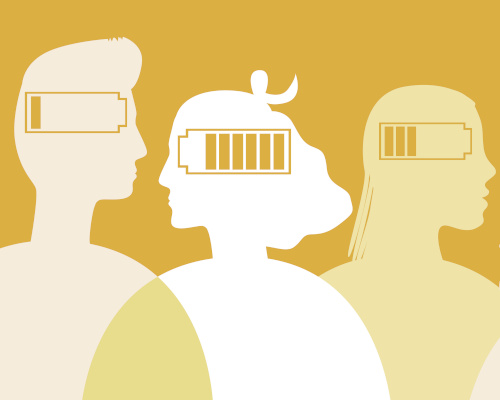Many teachers are embracing the return to a standard classroom setting. Naturally, some are worried about how much stress will come with trying to get students settled into in-person classes again.
Educators must receive ample support for mental and emotional well-being, as the strain of returning to normal will likely impact their mental strength and emotional wellness. Classroom tech can help relieve some of the stress educators carry and help them successfully navigate mental health challenges.
Video Conferencing
Most teachers are overworked and underpaid. There’s also a lack of support and resources to help them thrive, particularly for mental health. As a result, teachers are burnt out and struggling with various mental health challenges due to job demands. In turn, this impacts how productive they can be in the classroom.
Positive resources are critical in mitigating teacher burnout and diminished mental health. Classroom technology resources, like video conferencing tools, are one of those positive resources.
Video conferencing allows teachers to embrace flexible schedules that support a healthy work-life balance. For example, they can continue a hybrid schedule with students that consists of in-person and virtual classes. It’s also easier to fit in a remote therapy or counseling session during lunch or after school with video conferencing tools.
An Educator’s Own Device
It’s normal for schools to provide teachers with the tech devices they’ll be using throughout the year. However, there’s another option, and that’s bringing a personal device to work.
Trying to learn a new, school-provided device can be extremely frustrating, especially if they aren’t tech-savvy. In addition, continual frustration can negatively impact mental health and how they interact with students.
On the other hand, when teachers can bring their own devices to work, it eliminates the learning curve for school-provided technology. The ability to bring a personal device to work enables them to navigate lessons more confidently and engage with students.
Ask about your school’s BYOD policy. If you find out that your school doesn’t allow you to bring your own device to work, make a case to school officials about why it’s a good idea to create one.
Gaming Consoles
Although many people view gaming as primarily harmful to mental health, it can actually stimulate the mind and boost your mood. Playing video games can also contribute to better cognitive function.
Related:
Chicago students can take up to 5 mental health days
How a higher-ed partnership transformed student mental health services at our school
Of course, gaming consoles in the classroom would have to be used strategically and only at appropriate times. That being said, educators can use this technology to stimulate their minds, relieve stress, and connect better with their students.
Teachers can explore games that are centered around education and those that aren’t, experimenting with different consoles. If they find a few games and a console that positively impact their mental health, they can set aside time to enjoy them daily — with and without student interaction. It’s also helpful to the lesson plan to work gaming console time into the class schedule, gamifying instruction to help students retain information quickly and efficiently.
Virtual Reality
Sixty percent of U.S. parents see VR playing a key role in the classroom over the next five years. Not only will students be able to learn with VR tools, but teachers can use them to address their mental health.
Stepping into an alternate reality can be surprisingly positive for an educator’s mental health. For example, they can immerse themselves in a VR community to foster social connections and reduce isolation. Teachers can also partake in VR therapy sessions.
VR tools can be costly, but more affordable options are the goal for the future. Talk with school officials to see if VR tools can be worked into the budget.
Data Analytics
There are perpetual teacher shortages due to stress related to the job. Teachers, more than the rest of the adult population, report frequent job-related stress and symptoms of depression.
Job-related stress can exacerbate the mental health challenges of educators. From unruly students to diminishing resources to exceptionally long work days, many factors contribute to overwhelming stress.
Luckily, they can create a more productive, peaceful classroom if they have access to data that provides insights into student engagement, attendance, performance, curriculum effectiveness, and well-being. As a result, work won’t be as stressful, and teachers’ mental health will benefit.
Educators aren’t always data analysts. However, they are intelligent individuals with the capacity to read and interpret data. That said, they can also team up with data specialists to ensure the most effective use of data analytics tools.
Social Media
Many educators are against the use of social media in the classroom because it can be a huge distraction to students. However, others have decided to embrace using social media, and their classrooms are all the better for it.
Social media can be a critical resource for mental health, too. For example, teachers can connect with other educators and get insight into how to better the classroom environment. There are also plenty of groups to join and experts to follow on these platforms for mental health and emotional well-being support.
Even when it’s positive, too much social media can take away from real life. It’s integral to stay present to nurture good mental health. Even with positive use of social media in the classroom, teachers should limit their students’ and their own use of the platforms to educational purposes and certain times of the day.
Educators are incredibly valuable to our children and the entire community. However, this career path can be mentally and emotionally draining. Because of this, it’s essential to do everything possible to nurture teachers’ mental well-being. Leveraging the classroom tech tools mentioned above is a great place to start.
- 4 ways to encourage play in education - April 25, 2024
- CoSN IT Leader Spotlight: Lisa Higgins - April 25, 2024
- It’s time to pay student teachers - April 25, 2024

